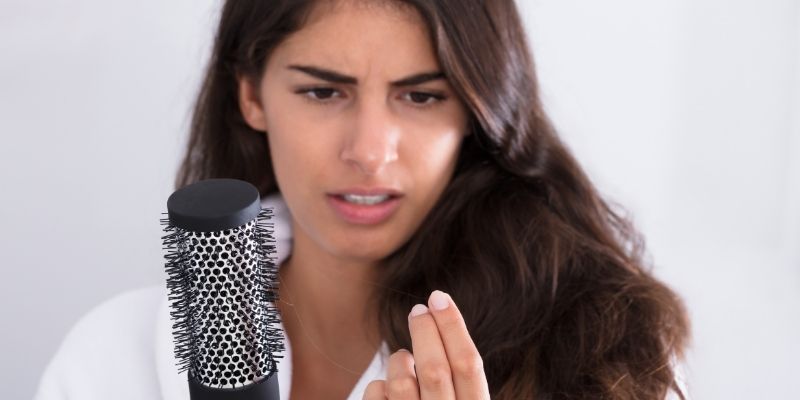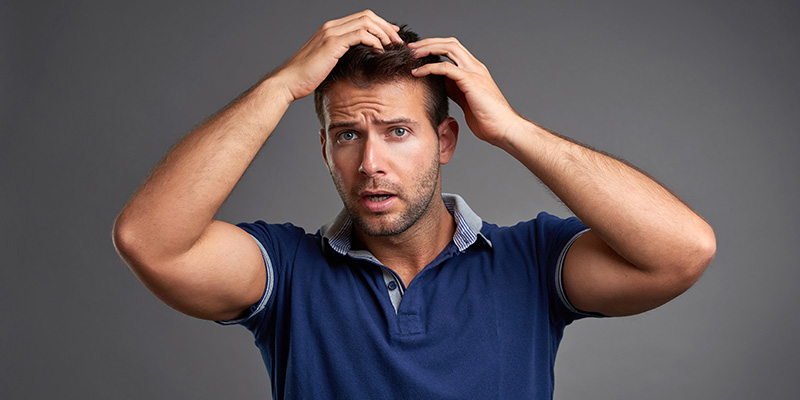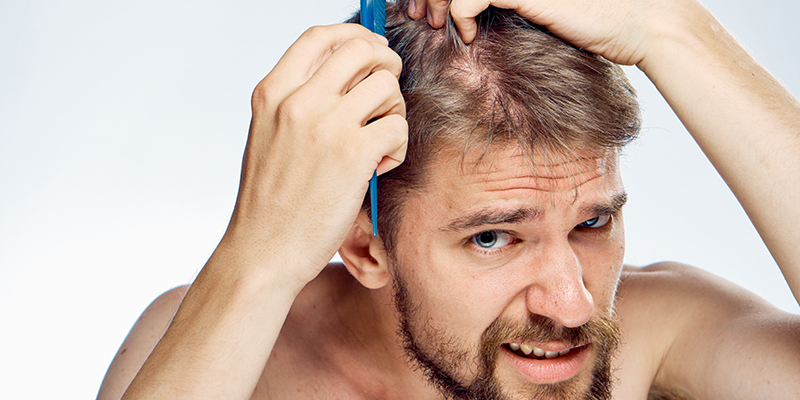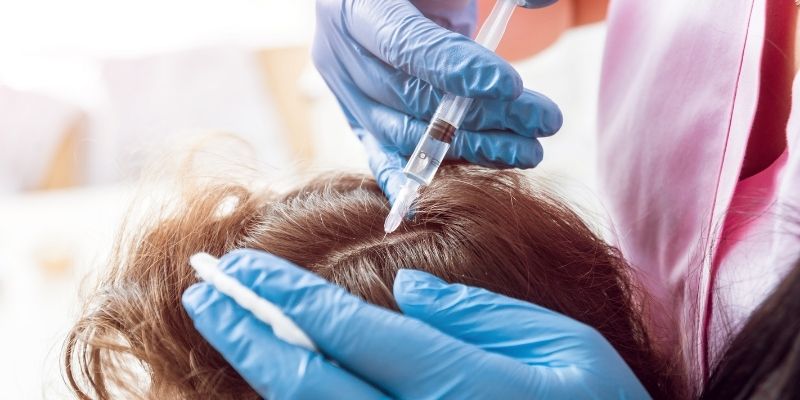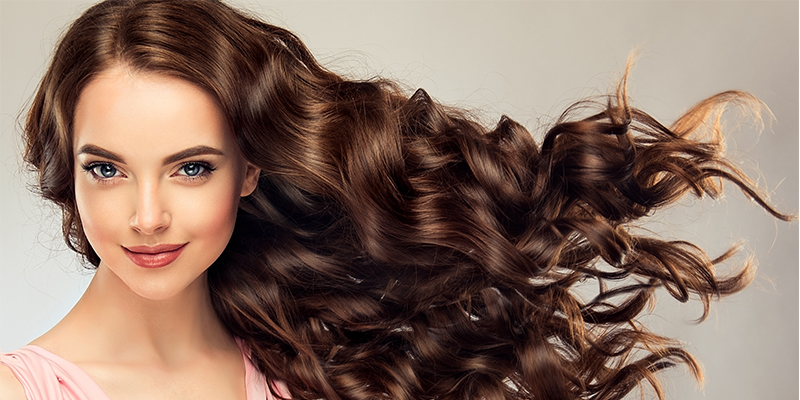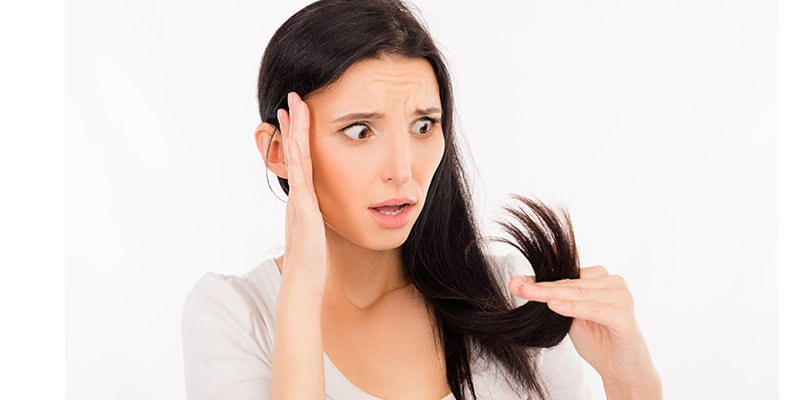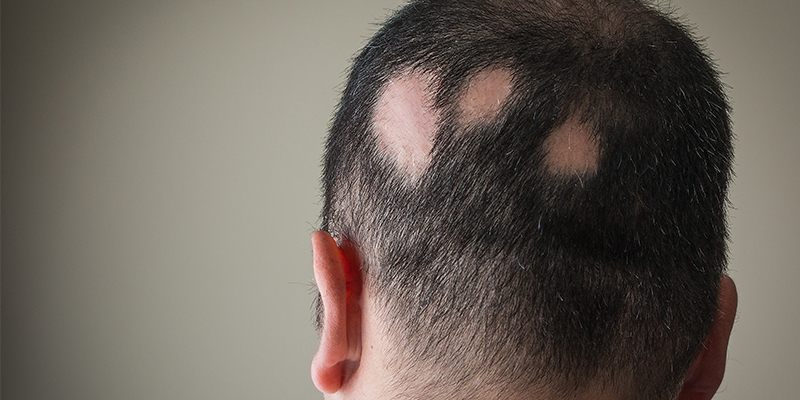What Are The Early Signs Of Hair Loss And Balding?
It is normal to lose between 50 and 100 strands of hair a day without noticing it. Generally, it is not a cause of worry. However, it can sometimes indicate an underlying medical condition. Hair loss can be sudden or gradual in progression. Sudden hair loss results from an acute illness or stressful event and is quick to recover as the trigger subsides. Patterned hair loss or baldness is generally gradual in both men and women and takes few months to years to progress. Most of the times, it is hereditary with a few exceptions. In females, it may be a sign of hormonal imbalance.
Hair loss can also occur as a result of an existing medical condition such as thyroid problems, diabetes, or lupus. Certain medications or chemotherapy may also trigger hair loss. Other causes include stress, weight loss, a low protein diet, poor nutrition and iron deficiency.
Any treatment for hair loss begins with understanding the cause. In some cases, treating the root cause will correct the condition. Alternatively, hair growth medicines and clinical therapies for hair restoration also help.
Can We Detect Hair Loss In Its Early Stages?
Identifying symptoms of hair loss in the early stages can be difficult, but one needs to only look out for any significant changes in the hairline and volume of hair. Hair thinning for most individuals typically starts around the temples.
If you notice abnormal hair loss, it is critical that you take action as soon as possible to prevent the condition from worsening.
What Are The Early Signs And Symptoms Of Hair Loss?
Being aware of the common symptoms of hair loss can help you take corrective action immediately. However, it is essential to remember that the signs may develop suddenly or take some time to manifest and become noticeable.
- You find much hair on the pillow or in the shower – The next time you wake up or right after you take a shower, pay attention to the amount of hair on your pillow or in the bathroom drain. Losing a couple of strands is part of regular hair shedding, but if you notice large clumps everywhere, then it is a clear indicator of acute hair loss.
- You observe a change in your hairline – Take a look at some of your recent photographs and see if there is any change in your hairline. A receding hairline usually begins around the temple region.
Must Read: How To Stop Receding Hairline In Men And Women
- You note hair thinning – This symptom can either affect your entire scalp or specific patches such as the crown area or the temple areas. For men, hair thinning begins at the forehead. Gradually the hairline starts resembling the letter M. For women, the hairline might not change, while the parting line broadens, making the scalp visible.
- You observe that your brushes and combs are full of hair – If you notice that large clumps are getting stuck after every brushing session, it is a clear indicator of severe hair loss.
- You see bald spots – In cases of alopecia areata, one may notice discrete patches of complete hair loss majorly on the scalp. This condition may also affect moustache, beard, eyebrows or any other hairy area of the body.
- You experience a sudden loss of hair – People undergoing mental or physical trauma may experience acute hair thinning suddenly.
- You may experience a full-body hair loss – Certain treatments such as chemotherapy can result in a sudden loss of hair from the whole body.
- You notice patches of scaling on the scalp – Hair loss can result from fungal infections like ringworm. Accompanying symptoms include redness and inflammation of the scalp, and brittleness of hair.
- You experience scalp itchiness or flaking – Generally, the scalp itches or flakes because of dry, irritated skin, or an increase in sebum production. These are also symptoms of dandruff.
If you observe one or more of these symptoms of hair loss, you should promptly seek medical guidance. While early detection is equivalent to winning half the battle, identifying the underlying cause is necessary for choosing the appropriate treatment. See a doctor for further advice.
What Are The Treatments That Help Control Hair Loss?
The following treatments aid in controlling hair loss and restoring volume–
- PRP treatment increases the thickness of hair and hair count while treating patterned hair loss or baldness.
- Dermatologists use low-level laser light therapy to stimulate hair growth and improve its density.
- Medications such as Minoxidil and Finasteride treat pattern or hereditary baldness successfully.
Must Read: PRP Vs Other Treatments For Hair Fall – Which Is Better?
What Action Can I Take To Stop Hair Loss?
Adopt the following preventive measures as soon as you notice signs of hair loss.
- Follow a nutritious diet consisting of foods rich in iron, proteins, and antioxidants. Include green leafy vegetables, green tea and other organic ingredients in your meal plans.
- Avoid opting for tight hairstyles like ponytails, braids and buns.
- Avoid going for chemical treatments such as colouring and perming, and stay away from using straighteners, curling irons and other forms of heat styling.
- Use a wide-toothed comb to remove tangles.
- Inculcate healthy lifestyle habits to combat stress as it is one of the significant causes of hair fall.
Must Watch
Hair fall is a common complaint, but it is critical to pay attention to early signs of hair loss to avoid irreversible damage. Consult an expert trichologist immediately if you observe alarming symptoms of hair fall or hair thinning. Your doctor will advise the right treatment for you that offers long-lasting results.
Our certified subject matter experts do extensive research and collate facts from reputed scientific journals and international studies to create informative and engaging articles related to all your dermatology concerns. They strive to help you decipher medical jargon, distinguish fact from fiction and overcome paranoia. Our qualified medical board or expert panel goes a step further to verify these facts based on their rich academic knowledge, vast clinical experience and critical industry insights to ensure you consume only medically accurate content that empowers you to make informed decisions about your hair and skin-care treatments and weight management. Check out our Editorial policy for further details
https://www.aad.org/public/diseases/hair-and-scalp-problems/hair-loss#treatmenthttps://www.health.harvard.edu/a_to_z/hair-loss-a-to-z
https://www.ncbi.nlm.nih.gov/pmc/articles/PMC3769411/
https://www.ncbi.nlm.nih.gov/pmc/articles/PMC4622412/
https://www.ncbi.nlm.nih.gov/pubmed/28932059
https://www.ncbi.nlm.nih.gov/pmc/articles/PMC4740347/
https://www.aad.org/public/diseases/hair-and-scalp-problems/scalp-psoriasis/tips-for-managing/10-ways-to-reduce-hair-loss
https://www.ncbi.nlm.nih.gov/pmc/articles/PMC4989391/






